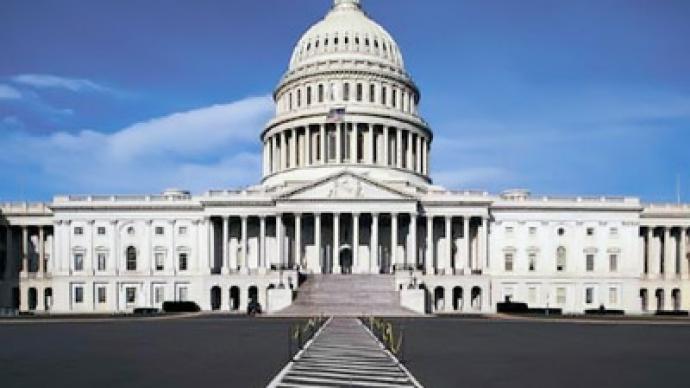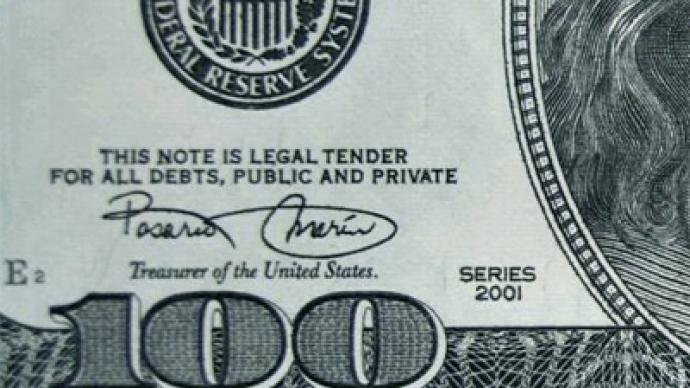If Democrats and Republicans can’t decide on a decision regarding the debt ceiling dilemma, some are now saying that it doesn’t even matter — and that laying out a limit is actually unconstitutional.
A group of lawmakers are combing over the Constitution to see if the Treasury can go ahead and ignore Congress if a compromise can’t be made between both sides of the aisle. Now some politicians say that the Fourteenth Amendment might make the whole debate a moot point.The legislation, added to the Constitution in 1868, states that "The validity of the public debt of the United States, authorized by law… shall not be questioned.” While, like much of the Constitution, the wording is vague and open to interpretation, Delaware Senator Chris Coons tells The Huffington Post that he is among a group of lawmakers seeing if this can mean that negations aren’t even necessary."This is an issue that's been raised in some private debate between senators as to whether in fact we can default, or whether that provision of the Constitution can be held up as preventing default," Coons says."I don't think, as of a couple weeks ago, when this was first raised, it was seen as a pressing option,” he adds, but with the nation facing a debt limit deadline of only a month away as of this weekend, Coons says the amendment is “going to get a pretty strong second look as a way of saying, 'Is there some way to save us from ourselves?'"In an article published in The Atlantic earlier this year, legal scholar Garrett Epps writes, "This provision makes clear that both the monies our nation owes to bondholders, and the sums promised in legislation to those receiving pensions set by law from the federal government, must be paid regardless of the political whims of the current congressional majority.”If this is indeed the case, Democrats and Republicans won’t need to come to an agreement over raising the ceiling. Rather it will be the constitutional obligation of America to pay its debts, whether or not its limit is lifted.The White House has not offered commentary on the constitutionality of the issue so far, but at this week’s press conference, President Barack Obama told reporters, "I'm not a Supreme Court justice, so I'm not going to put my constitutional law professor hat on."Meanwhile, those that helped put America in this place are only looking to make a penny from it. “Wall Street gets extremely wealthy off of our debt,” says economist and author Les Leopold to RT. “They are looking for a way to profit off of this,” he says, and adds that they will find a way to do so whether or not the debt ceiling dilemma is solved anytime soon.Katrina vanden Heuvel of The Nation says Obama could invoke article 4 of the 14th amendment to say that the debt ceiling is unconstitutional, but think that it is “unlikely” that he will. “It is a tool in the tool kit to have leverage,” she adds, however. Obama, she says, is “confrontation-adverse,” and without Republicans willing to make a compromise that would increase taxes on the rich, she says this stalemate will only stay longer.


